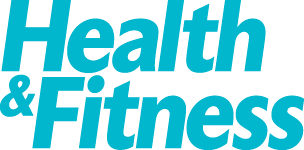
When it comes to healthy eating and weight loss, cravings tend to be seen as a derailer of goals. But there’s nothing inherently “bad” about them.
“A craving is a very natural and normal response to meeting a need,” explains registered dietitian Rebecca Scritchfield, author of Body Kindness. “That craving could be for energy or to regulate emotions. Maybe the day wasn’t so sweet, so you want something sweet, or maybe you’re seeking enjoyment.”
But obviously, giving in to cupcakes every single time isn’t the way to build a strong, healthy body. So your first step is accept that cravings will always be there. “You can’t eliminate cravings,” says nutritionist Mike Roussell, PhD, author of “The MetaShred Diet.” “But you can reduce your susceptibility to acting on them and reduce the effects they have on you.”
If you feel controlled by cravings or can’t stop at one cupcake when you do satisfy the urge, try these unconventional tricks to better manage your urges.
IN THE MOMENT
1. BREATHE
Hunger can be physiological (your body truly needs energy) or hedonic (you just saw a pizza commercial and now want a slice with pepperoni and mushrooms), Roussell explains. If it’s the latter, try breathwork. By changing our breath, we can change how we feel, according to a study in Cognition and Emotion. Experts recommend longer exhalations to help ease anxiety, which helps you fight cravings. And a recent (but inconclusive) study found slow breathing — nine breaths per minute — may help reduce food cravings.
2. THINK LOGICALLY
When people “cheat” on their diet, they tend to justify why they “can” have chicken wings, Roussell says. Although it may seem hard in the moment, being logical can help you stop a craving. If you track your calories or macros, you can easily see — as much as you may think you want that ice cream at night — you’ve hit your goal for the day. This helps you see you don’t “need” ice cream — and if you really want it, you can work it into tomorrow’s calorie allotment, Roussell says.
READ MORE > 8 FOODS THAT ARE SURPRISINGLY GOOD FOR WEIGHT LOSS
3. PLAY A GAME
Procrastinating at work isn’t always a good thing, but it may help you with your cravings. A 2015 study published in the journal Addictive Behaviors found that subjects who played Tetris for three minutes had a decrease in food cravings. In another study, British scientists asked 48 participants to use a mobile app they built called iCrave whenever they, yes, had a craving. The app then prompted the subjects to visualize a specific scene, such as a lion in a zoo or a forest. That act helped reduce overall snacking and unhealthy snacking, compared with a group that tracked snacks with a different app. Try using an app like Stop, Breathe & Think or Headspace and doing a short meditation. Or play a game … but maybe not Candy Crush.
HEAD OFF CRAVINGS
4. TIME YOUR MEALS STRATEGICALLY
The debate over “three meals versus five meals” per day for better weight loss continues, but if you aren’t hungry for snacks, there’s no reason to eat them. And there’s no reason to follow some prescribed schedule, either. Maybe you sail through from lunch to dinner but always want a little something before bed. So eat then and not in the afternoon, says Roussell, so you’re not adding extra calories. Instead, those calories are accounted for.
5. CREATE NUTRITION AUDIBLES
In football, quarterbacks call an audible when they get to the line and decide their planned play isn’t going to work with the way the opposing team’s defense is setting up. Roussell recommends the same thing with nutrition: Have a backup play when your own plans go awry. For instance, if mornings get crazed and you don’t have time to make breakfast, keep five ingredients on hand that you can toss in the blender to have a quick, healthy smoothie. Or know exactly where to go for a healthy lunch when you forget yours at home. Having that plan in place makes you less likely to eat just anything.
RETRAIN YOUR BRAIN
6. EAT THE CRAVING DAILY
Scritchfield suggests a slightly unorthodox method to take on your cravings: Embrace them, don’t fight the. If you can establish a solid system to manage them, that is. Her simple suggestion that works for her clients? Give yourself permission to have that food every day, once a day, and schedule when you will have it. So keep your meals balanced, but have that handful of fries at lunch or dinner. Really enjoy them, rather than stuffing them down your throat. This helps reduce guilt, stress and anxiety, she says, and “by Day 3 or 4, you’ll be over it.” Rather than fries being a “bad” food, they’ll just be a food — one you can choose to have anytime you want them. But you’ll crave them less.

